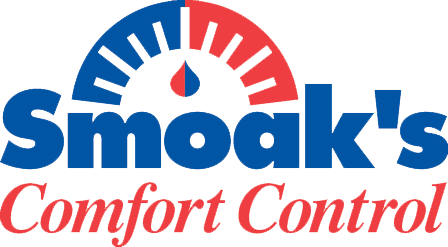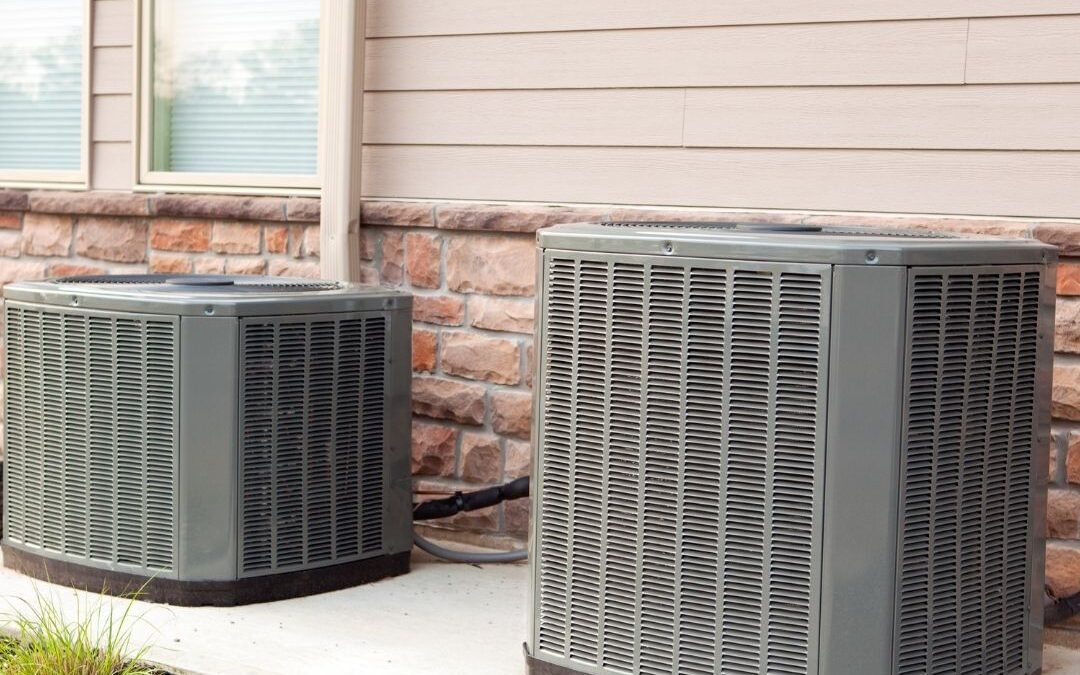When temperatures drop in Charleston, SC, and the surrounding areas, reliable heating equipment and systems become essential. But what happens when your HVAC system is not heating as it should? If your unit blows cold air or refuses to warm your home, it’s more than just an inconvenience—it could be a sign of a more significant issue. At Smoak’s Comfort Control, we understand how critical it is to keep your home warm, so we’re breaking down the common causes of heating problems and how to fix them.
Let’s explore the most frequent reasons your HVAC system might malfunction, what you can do about it, and when to schedule heating services with the professionals.
1. Your System Blows Cold Air Instead of Hot
One of the most frustrating issues during colder months is when your air conditioning system blows cold air instead of warm air. You may notice the vents pushing cool air or the unit blowing hot air inconsistently. This can occur due to several factors, ranging from thermostat settings to more complex mechanical failures.
Before panicking, check your thermostat. Is it set to “heat” and the fan set to “auto”? Incorrect settings are one of the most common and easily overlooked causes. If you’re still feeling cold air, it’s time to dig deeper.
2. Thermostat Issues Can Throw Everything Off
Thermostat issues can mislead your entire heating system. A faulty or aging thermostat may send incorrect signals to your heating unit, making it turn off prematurely or fail to switch to heating mode.
We recommend replacing the batteries or upgrading to a programmable or smart thermostat for more reliable control. If issues persist, contact a licensed HVAC professional from Smoak’s Comfort Control to diagnose and correct the problem.
3. Dirty or Clogged Air Filters Block Warm Air
Your system’s air filters are vital to your HVAC’s performance. Clogged air filters can restrict airflow, causing your system to overheat or circulate cold air. Not only is this uncomfortable, but it can increase wear and tear on your heating unit and spike your energy bills.
Experts recommend checking your air filters every 30 to 90 days, depending on your home’s needs. If the filter appears gray or dusty, it’s time for a change. Regular filter replacement helps maintain air quality and keeps your HVAC system blowing hot air consistently.
4. Heat Pumps Acting Up
In the Charleston climate, heat pumps are a standard and efficient option for cooling and heating. But like any mechanical system, heat pumps can experience issues—mainly when they haven’t been maintained.
A malfunctioning heat pump may fail to reverse the refrigeration cycle properly, leading to cold air blowing through your vents even when the system is set to heat. This can be due to a faulty reversing valve, low refrigerant, or electrical problems. Smoak’s Comfort Control provides expert HVAC repair to restore your heat pump’s performance and comfort to your home.
5. Pilot Light or Gas Supply Problems
If you have a gas furnace, an extinguished pilot light or interrupted gas supply could be the root of your issue, potentially due to a malfunctioning gas valve. Without a functioning pilot light, your heating unit won’t ignite, leaving you with cold air instead of blowing hot air.
Check if the pilot light is lit. If it’s out, follow the manufacturer’s instructions to relight it. However, if the pilot light continues to go out, or you suspect a gas supply issue, call Smoak’s Comfort Control immediately. Handling gas components without proper training is dangerous—this is where a heating service professional is essential.
6. Ductwork Dliemmas: Is Your Heat Escaping?
Your HVAC system may be working fine, but if your ductwork is damaged, disconnected, or poorly insulated, you could still feel cold air circulating through your home, often requiring heating repair. Faulty ductwork allows heat to escape into attics or crawl spaces before it reaches your living areas.
Leaks and blockages in the ductwork can make your heating system work harder than necessary, which reduces its efficiency and lifespan. A Smoak’s HVAC professional can inspect and repair faulty ductwork to ensure your system is blowing warm air where it should.
7. Your System Needs Professional Heating Service
Over time, wear and tear will naturally affect your heating system. Motors, belts, sensors, and other components can degrade, causing performance issues. Scheduling annual heating service appointments with Smoak’s Comfort Control helps catch these problems early before they escalate into complete breakdowns.
Our experienced technicians inspect all system components, clean air filters, test safety features, and recommend improvements during a routine heating maintenance visit. This is the best way to extend the life of your heating unit and prevent costly HVAC repairs down the line.
8. Signs it’s Time to Call for HVAC Repair
Not all issues can be addressed with a quick DIY fix. If your system continues to blow cold air, refuses to stay on, makes strange noises, or you notice a burning smell, it’s time to schedule a service call with Smoak’s Comfort Control.
Our team specializes in quick, accurate diagnostics and professional HVAC repair throughout Charleston, SC, and nearby areas, including Mount Pleasant, Summerville, North Charleston, and Goose Creek. We’ll restore your heating system so you can enjoy a cozy and safe home environment.
9. Preventative Maintenance Maks All the Difference
Routine maintenance is the best way to avoid issues like cold air blowing through your vents during a cold snap. Scheduling semi-annual heating and air conditioning checkups ensures your HVAC system operates at peak efficiency, especially if you rely on heat pumps year-round.
Our Comfort Club Maintenance Plan includes seasonal tune-ups, air filter replacements, priority scheduling, and discounts on parts and labor. It’s a small investment that delivers long-term savings and peace of mind.
10. Why Choose Smoak’s Comfort Control?
With decades of experience serving the Charleston area, Smoak’s Comfort Control is your go-to HVAC company for all things heating and cooling. Our licensed technicians are trained to work on many heating systems, including furnaces, heat pumps, and ductless mini-split systems.
We’re committed to quality, honesty, and outstanding customer service—whether you need a quick fix or a complete system replacement. Every service call is backed by decades of knowledge and local trust.
Keep Your Home Comfortable Year-Round
If your HVAC system is not heating, don’t wait for the problem to worsen. From thermostat issues and pilot light problems to clogged air filters and faulty ductwork, our Smoak’s Comfort Control team is ready to help.
Serving Charleston, SC, and the surrounding communities, we ensure your heating unit always blows hot air when you need it most. Trust our experienced technicians for fast, reliable solutions and professional service.
Call Smoak’s Comfort Control Today!
Whether your HVAC system is blowing warm air inconsistently, your heat pump won’t switch modes, or you’re tired of dealing with cold air in your home, we’re here to help. Schedule your heating service or HVAC repair today to get your comfort back on track and avoid further damage.
Contact Smoak’s Comfort Control for professional heating and cooling services in Charleston, SC, and nearby areas. Let us keep your home warm and your energy bills in check.

